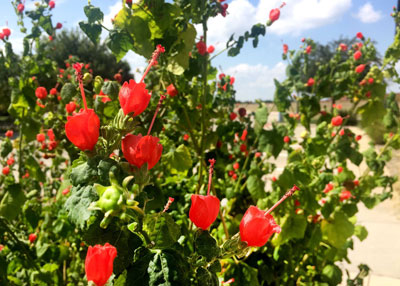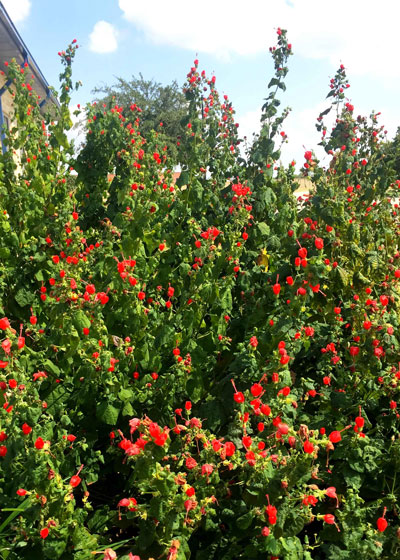Best Plant for Wildlife: Turk’s Cap
Turk’s cap (Malvaviscus drummondii) is one of our most dependable shrubby perennials. It’s a cousin of mallows and hibiscus, bearing large, maple-like, dark green leaves that provide the perfect backdrop for the bright red flowers.

Photo: Turk’s cap brings late-season color, activity to gardens.
How the plant got its name…
The petals are swirled and the buds never really open, hence the plant’s common name. White- and pink-flowering forms are sold as well as a variegated white-and-green type with the typical bright red flowers. A dwarf red form is available. The standard type grows to be 4 to 6 ft. tall and wide as it matures. Where temperatures drop to and below freezing the tops die to the ground in the winter. The plants sprout back up from their roots the following spring, and by summer they’re right back where they were the previous fall.

Photo: Turk’s cap plants grow to be 4 to 6 ft. tall and wide. They draw butterflies, bees and hummingbirds from miles around. Photo taken three days ago in Allen.
The biggest selling point for Turk’s cap for Texas gardeners is the fact that butterflies, bees and hummingbirds will come in from all around when it comes into bloom. It’s one of the finest magnets for these popular forms of gardening wildlife. However, because of its size, you’ll want to plant it in the back of the perennial garden. It does best in dappled shade and with moist, highly organic garden soil.
